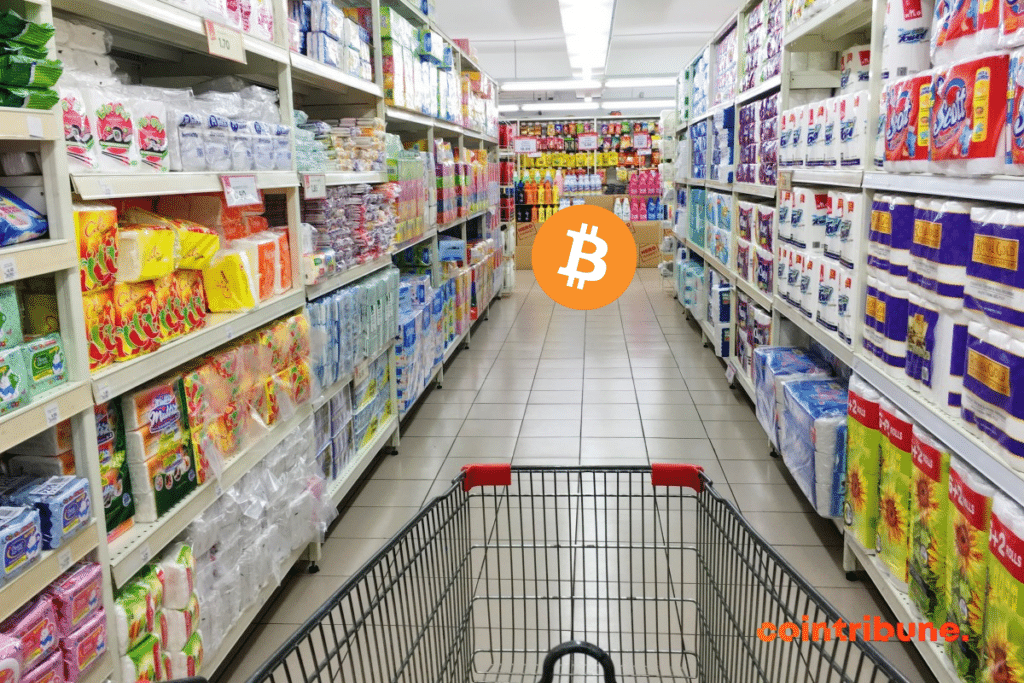Inflation | Purchasing power halfs
— Carl ₿ MENGER ⚡️🇸🇻 (@CarlBMenger) September 2, 2023
2 % 35 years (The goal)
4 % 17 years
7 % 10 years (Officially we here)
10 % 7 years
14 % 5 years
17 % 4 years
20 % 3.5 years
Inflation is theft.
A
A
How high has inflation been since 2010?
Mon 18 Sep 2023 ▪
5
min read ▪ by
▪
Invest
What is the cumulative inflation since 2010? What is the extent of purchasing power loss?

Sharp Decline in Purchasing Power
The purchasing power of a dollar in 2010 is equivalent to about $1.40 today. The greenback has thus experienced a cumulative inflation of 40%. That’s an average of 2.63% per year between 2010 and today.
This means that prices are 1.40 times higher than they were in 2010. A dollar now buys only 71% of what it could buy back then. In other words, purchasing power has fallen by 29%.
For comparison, in the UK, £1 in 2010 is equivalent to £1.64 in 2023. That’s a cumulative inflation of 64%. In France, it was 25%, which corresponds to a loss of purchasing power of 20%. The same euro now buys 20% less than in 2010.
This decline in purchasing power is partially offset by the increase in average wages (+8%). However, one euro saved in 2010 has still lost 20% of its purchasing power, salary increase or not.
It’s worth noting that a significant portion of this inflation has occurred recently, with a 10.5% increase in the last two years in France.
Given the geopolitical tensions and energy-related issues (oil peak), there’s not much confidence in the future. Especially when some decarbonization scenarios for the economy promise 10% inflation per year for… a long time.
Indeed, gaining purchasing power requires an increase in production per person (productivity). This increased production requires machinery and, thus, inexpensive energy. Inflation is closely linked to the prices and volumes of available fossil energy.
INSEE predicts that inflation will reach 5% again in 2023, knowing that its figures are well below reality.
The Real Inflation
The Consumer Price Index is a complex system. Among the accounting tricks, there’s the “substitution effect.”
For example, if the price of red meat increases, and the French decide to buy more chicken, the household basket’s weighting will shift in favor of chicken. This leads to an automatic moderation of inflation.
There’s also the quality effect. A computer costs 50 euros in the imaginary world of INSEE due to improvements in performance…
However, this fog dissipates when you look at inflation not as a whole but specific to each category.
Price changes between 2010 and 2023 in the United States for four essential products:
- Gasoline (+36%): From $2.73 per gallon to $3.73 ;
- Bread (+45%): From $1.36 to $1.98 ;
- Chicken (+48%): From $1.27 per pound of whole chicken to $1.89 ;
- Electricity (+41%): From $0.12 per kWh to $0.17.
In France, over two years, food prices have surged by 20%, and energy prices by 31%!
For reference, note the time it takes to lose half of your purchasing power according to various annual inflation scenarios
Comparison with the S&P 500 Index and Bitcoin
To put inflation into perspective, let’s take the example of investing one dollar in the US stock market (S&P 500) in 2010. That dollar would be worth $5 in 2023. That’s a return on investment of over 400%.
However, this figure needs adjustment for inflation. Subtracting about $1.46 from the $5, the real return is only 2.63%. This still represents a 163% increase in purchasing power.
In the case of Bitcoin, the performance since 2010 is 3,500,000%. And 4,180% over the last seven years.
In summary, those who invested their savings in the S&P 500 or Bitcoin saw their purchasing power increase despite the prevailing inflation.
The fiat system is a monetary Ponzi scheme that inevitably generates inflation, especially as production (burning ever more fossil energy) weakens.
We burn fossil fuels to convert work into wages. However, this energy is becoming increasingly expensive. Unless there’s an energy miracle, we won’t relive the “thirty glorious years.” It’s preordained that inflation will only get worse, exponentially.
This increasingly unbearable inflation will slowly push the masses towards Bitcoin, the very first currency with an absolutely fixed quantity. What else?
Bitcoin has the advantage of being within the reach of any budget, unlike luxury real estate, masterpieces of art, or even stock shares. What stocks to select to beat inflation?…
Maximize your Cointribune experience with our "Read to Earn" program! For every article you read, earn points and access exclusive rewards. Sign up now and start earning benefits.
A
A
Bitcoin, geopolitical, economic and energy journalist.
DISCLAIMER
The views, thoughts, and opinions expressed in this article belong solely to the author, and should not be taken as investment advice. Do your own research before taking any investment decisions.